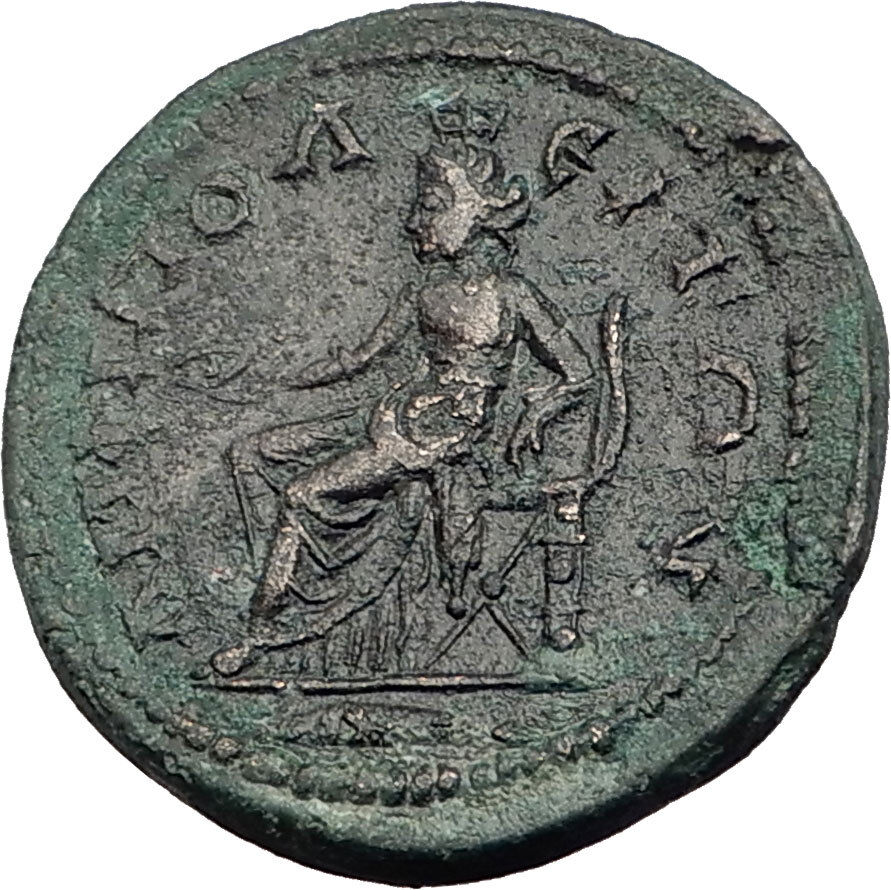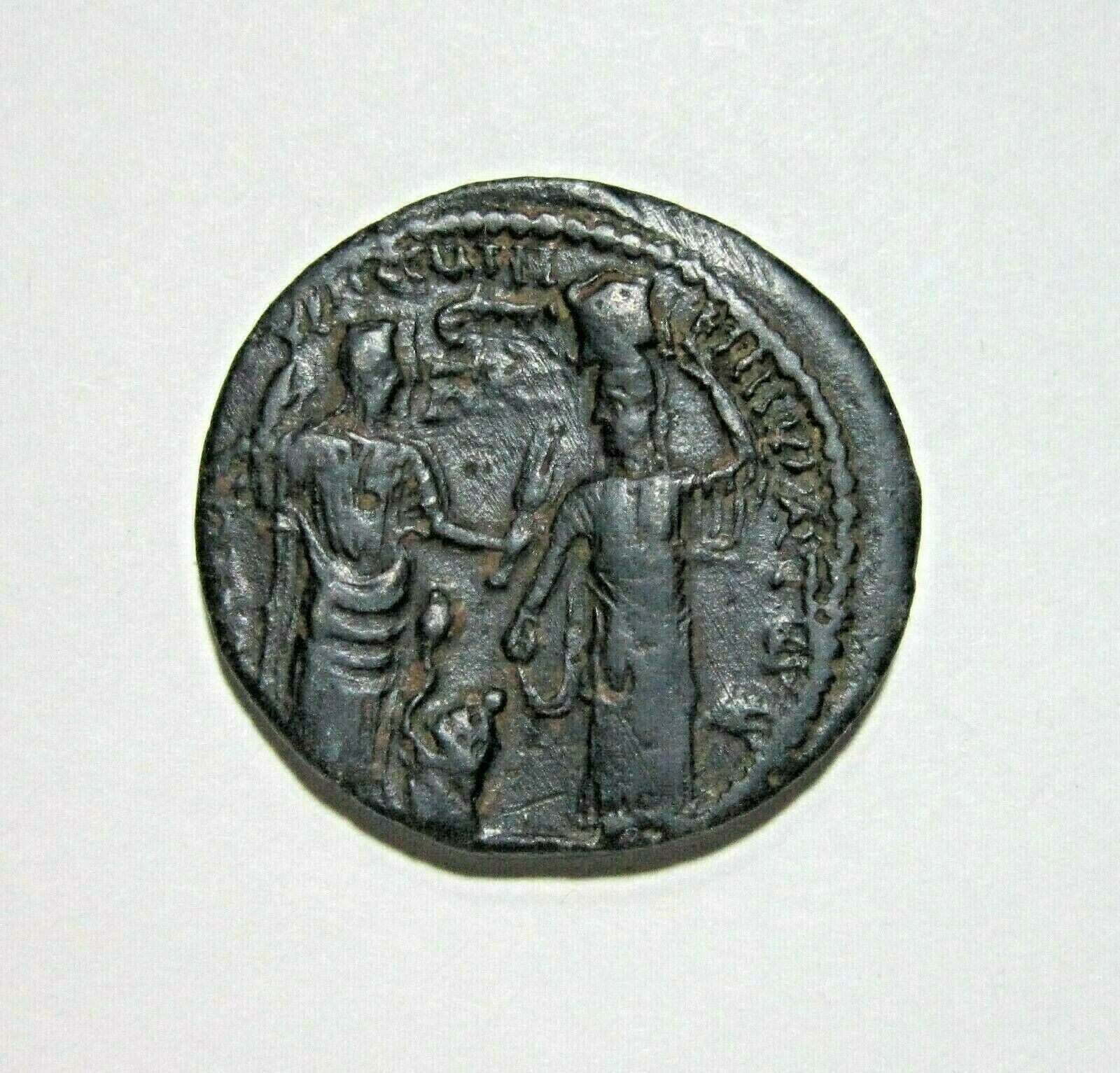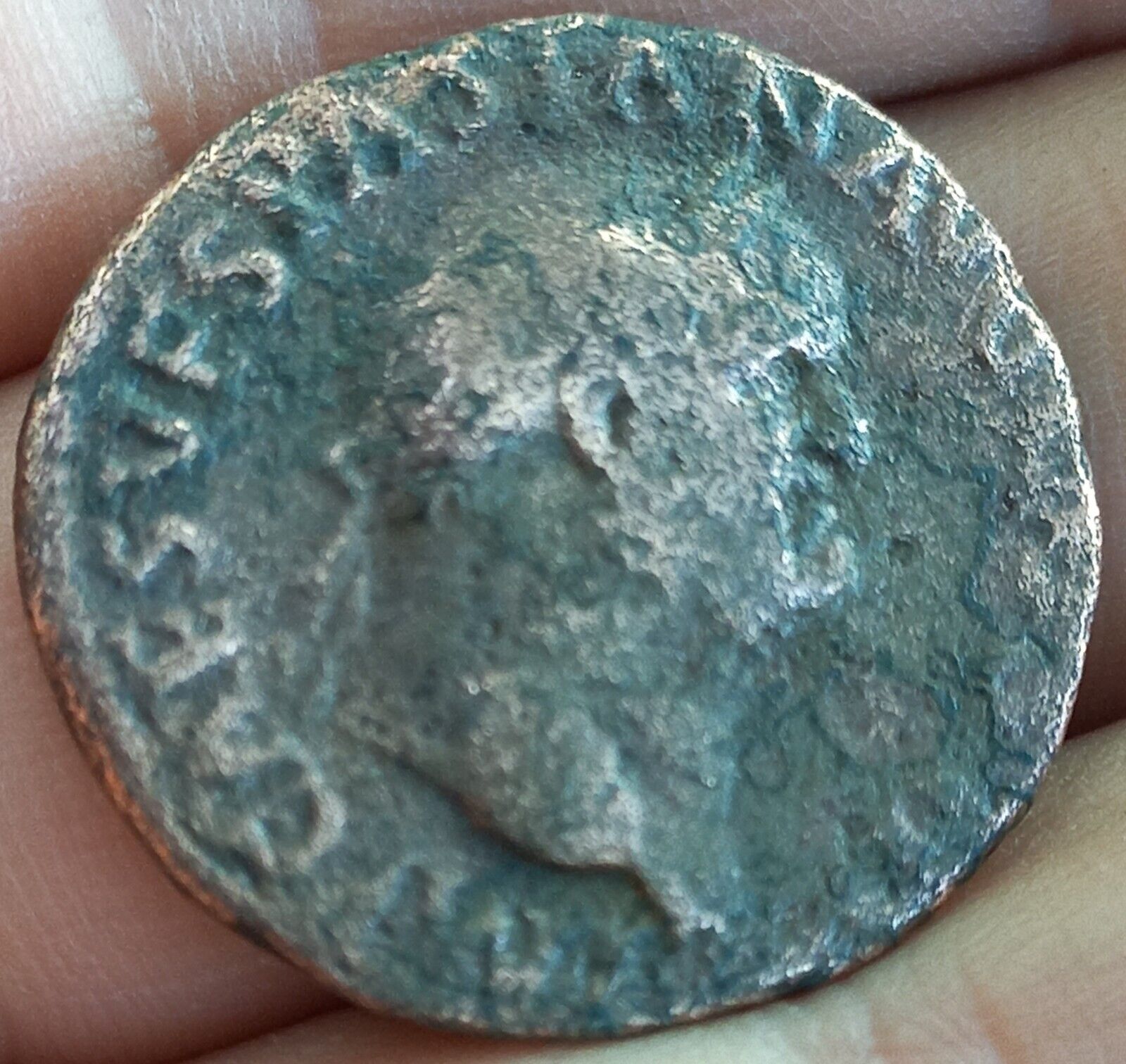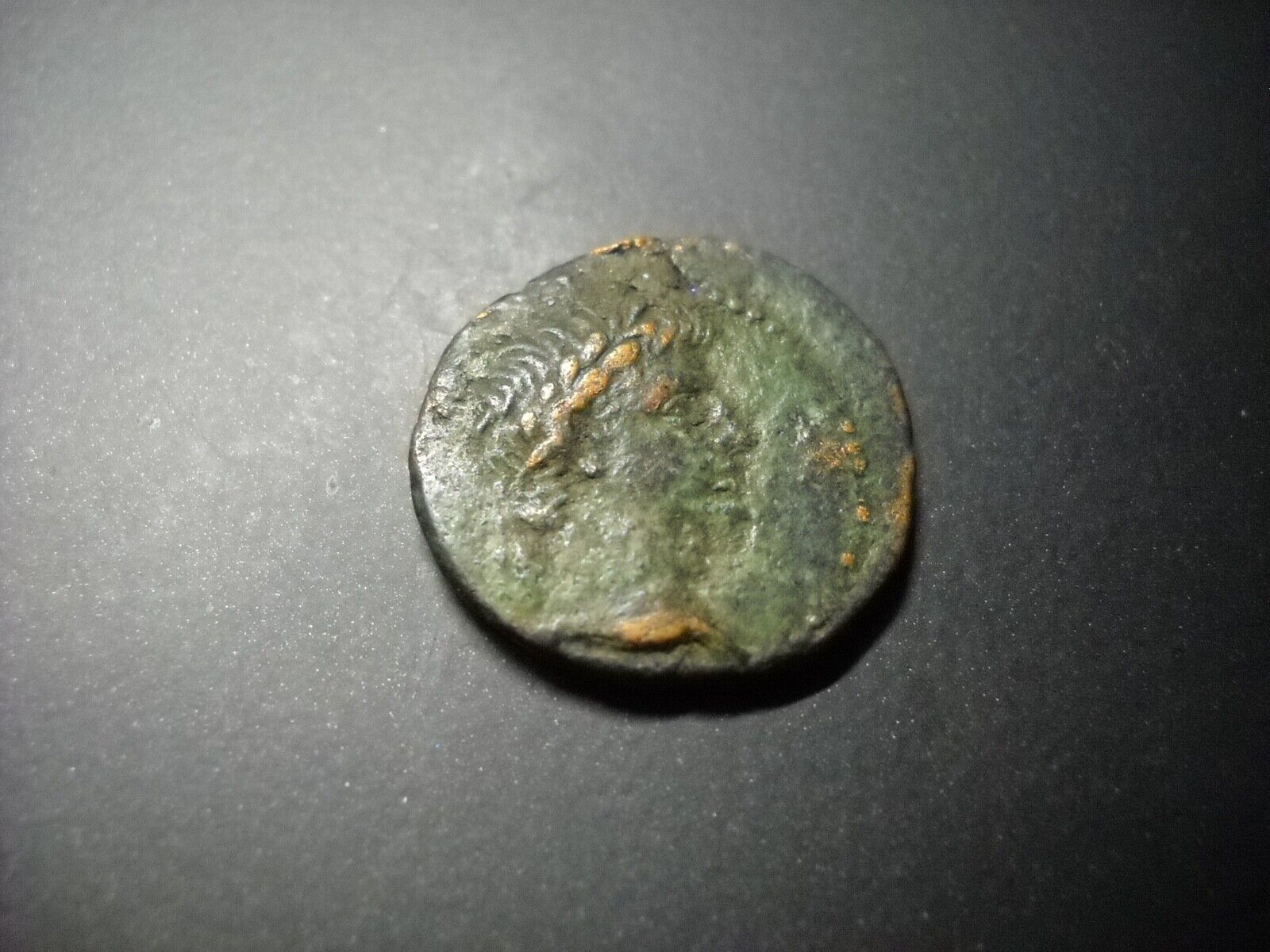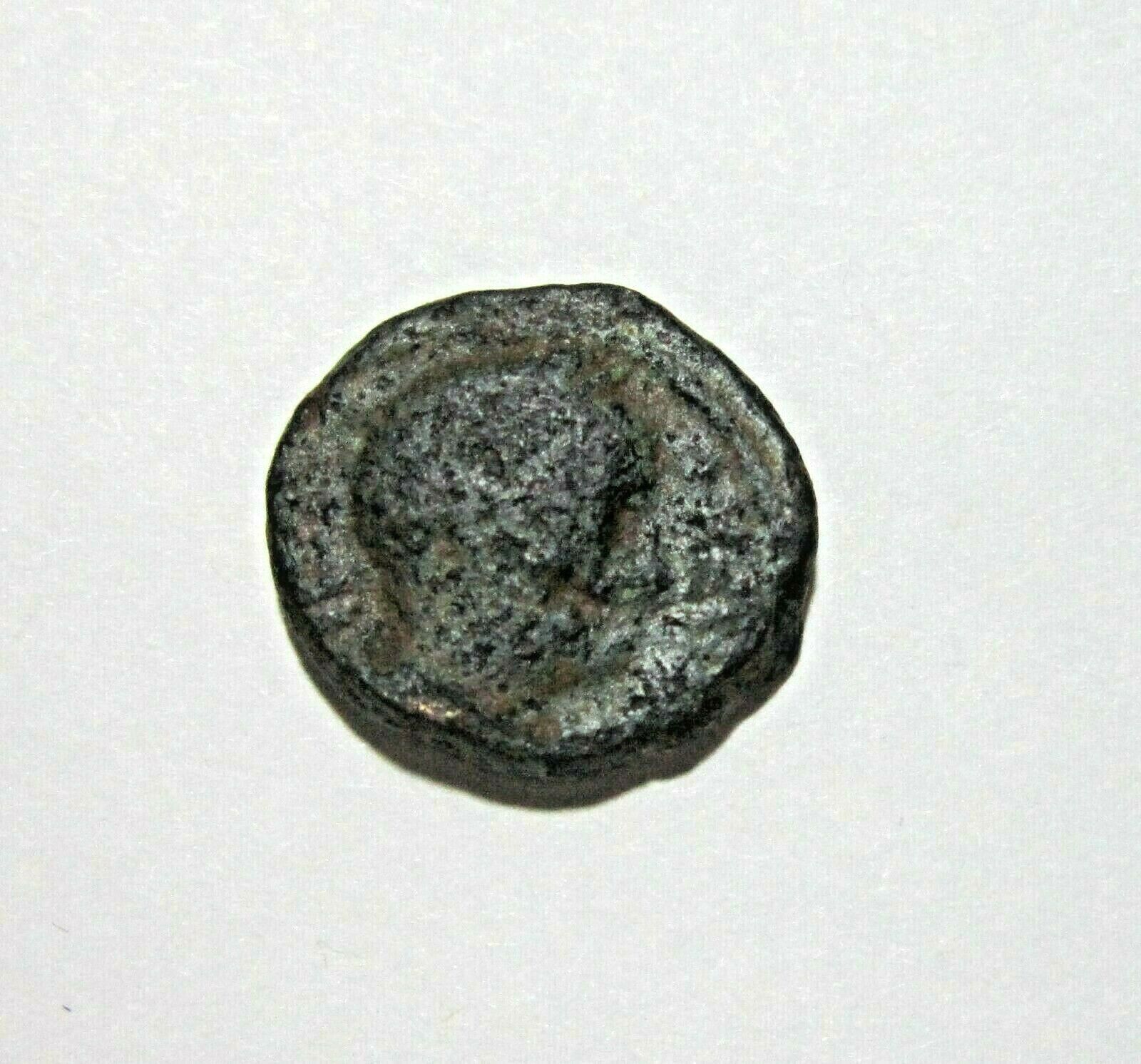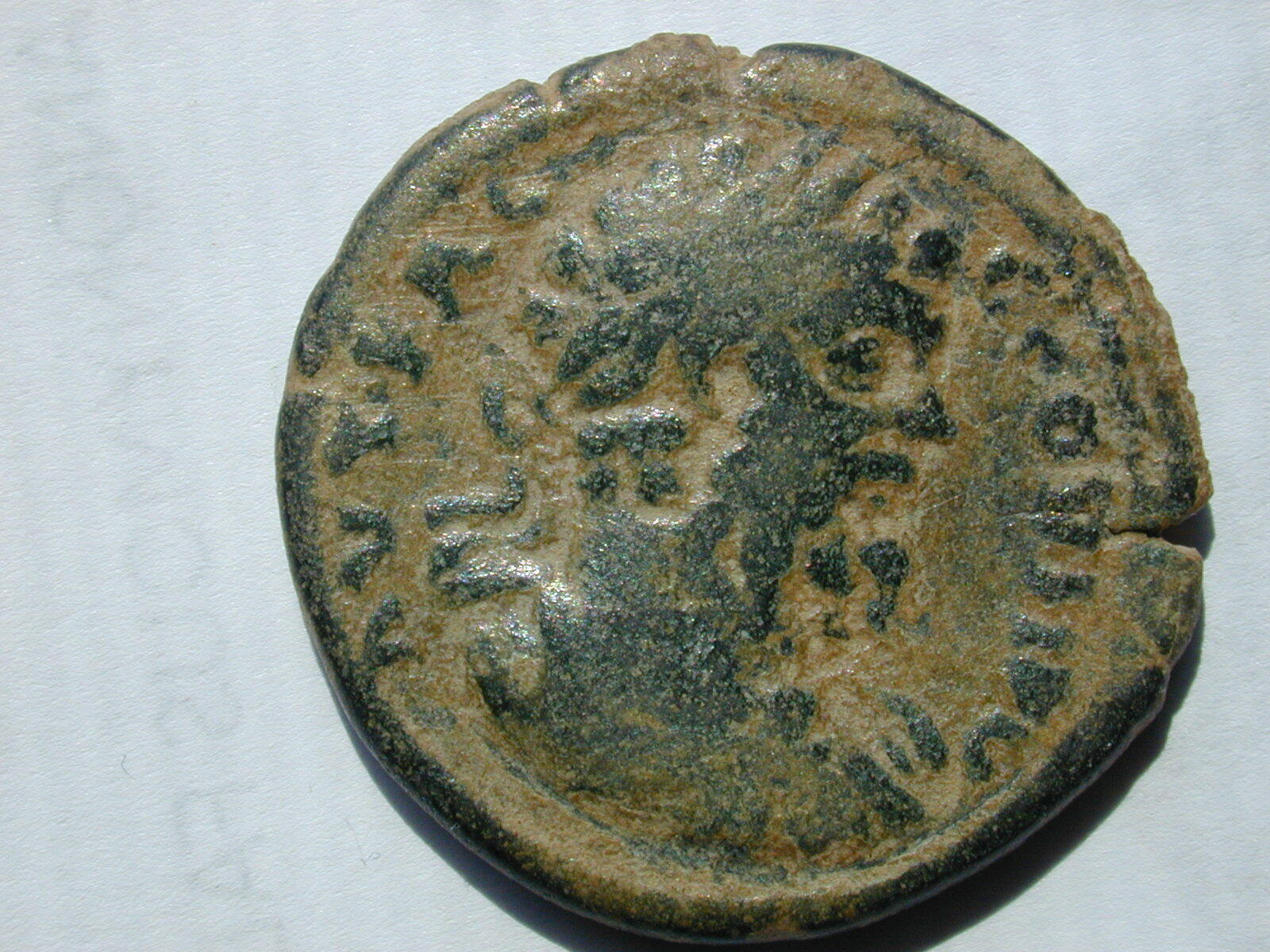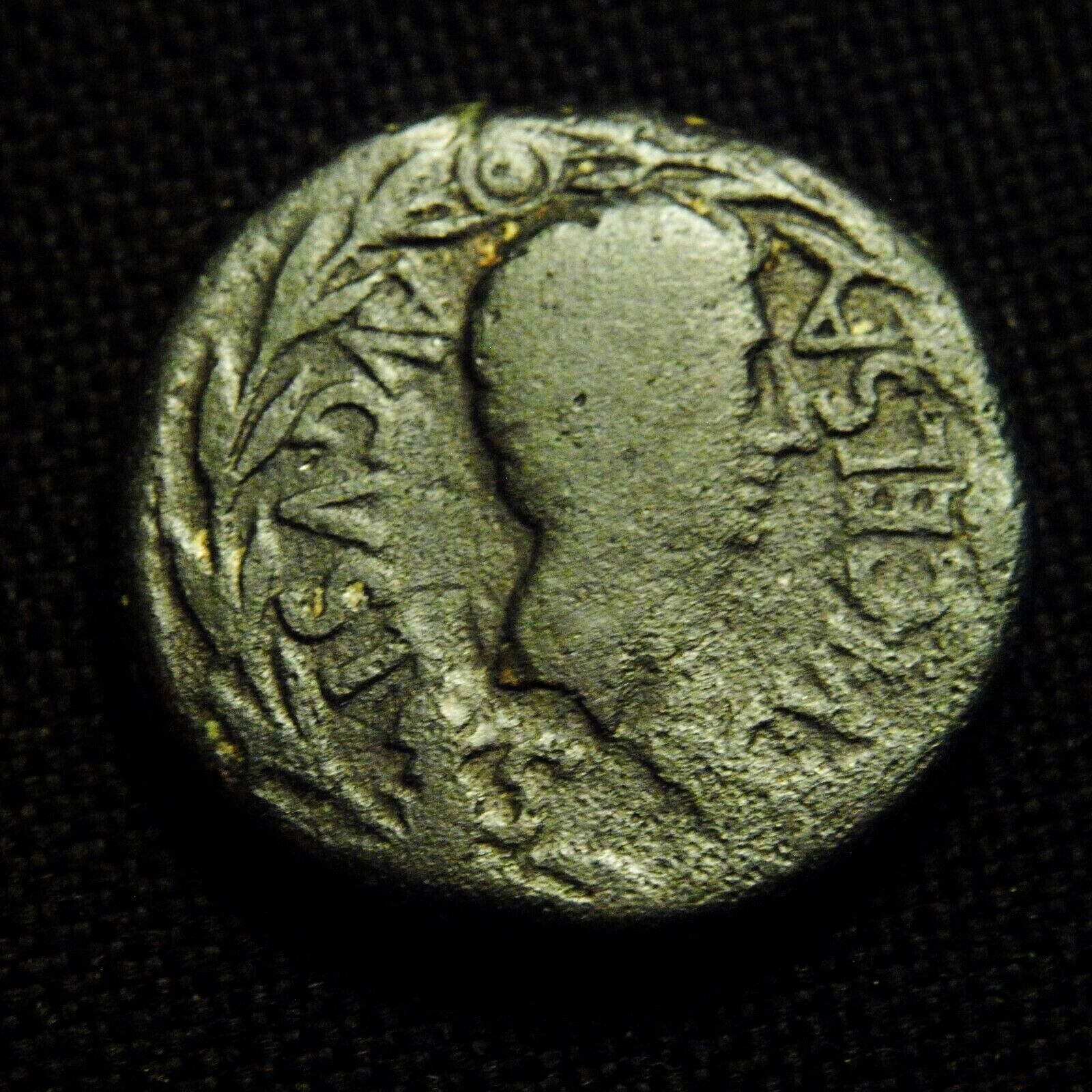-40%
CARACALLA 198AD Alexandria Troas Horse Authentic Ancient Roman Coin i48865
$ 73.92
- Description
- Size Guide
Description
Item:i48865
Authentic Ancient Coin of:
Caracalla
-
Roman Emperor
: 198-217 A.D. -
Bronze 23mm (4.01 grams) of
Alexandria Troas
in Troas
M AVP ANTONINO, Laureate, draped and cuirassed bust right, seen from behind.
COL ALEXAN AVG, horse grazing right.
You are bidding on the exact item pictured, provided with a Certificate of Authenticity and Lifetime Guarantee of Authenticity.
Alexandria Troas
("
Alexandria of the
Troad
", mod. Eski Stambul) is an ancient
Greek
city situated on the
Aegean Sea
near the northern tip of
Turkey
's western coast, a little south of
Tenedos
(modern
Bozcaada
). It is located in the modern Turkish province of
Çanakkale
.
According to the
Catholic Encyclopedia
, this site was first called
Sigia
; perhaps about 310 BC
Antigonus
refounded the city as
Antigonia Troas
. In its early years, Troas was a port city that supplied the
Dorians
with resources and trade. The city was conquered by the
Helladic
people and was nearly destroyed. It was rebuilt early in the next century and the name was changed by
Lysimachus
to Alexandria Troas, in memory of
Alexander III
of Macedon
(
Pliny
, N.H. 5.124 merely states that the name changed from Antigonia to Alexandria). As the chief port of north-west Asia Minor, the place prospered greatly in Roman times, and the existing remains sufficiently attest its former importance.
Strabo
mentions that a
Roman
colony was created at the location in the reign of
Augustus
, named
Colonia Alexandria Augusta Troas
(called simply
Troas
during this period). Augustus,
Hadrian
and the rich grammarian
Herodes Atticus
contributed greatly to its embellishment; the aqueduct still preserved is due to the latter.
Constantine
considered making Troas the capital of the
Roman Empire
.
In Roman times, it was a significant port for travelling between
Anatolia
and Europe.
Paul
of Tarsus
sailed for Europe for the first time from Alexandria Troas (
Acts
, 16:8-11) and returned there from Europe (and there occurred later the episode of the raising of
Eutychus
(
Acts
20:5-12).
Ignatius
of Antioch
also paused at this city before continuing to his martyrdom at Rome (
Ad Philad
. 11.2;
Ad Smyrn
. 12.1).
Several of its later
bishops
are known: Marinus in 325; Niconius in 344; Sylvanus at the beginning of the fifth century; Pionius in 451; Leo in 787; Peter, friend of the
Patriarch Ignatius
, and adversary to Michael, in the ninth century. In the tenth century Troas is given as a suffragan of
Cyzicus
and distinct from the famous
Troy
(
Heinrich Gelzer
,
Ungedruckte ... Texte der Notitiae episcopatuum
, 552;
Georgii Cyprii descriptio orbis romani
, 64); it is not known when the city was destroyed and the diocese disappeared. The city remains a
titular see
of the
Roman Catholic Church
,
Troadensis
; the seat is vacant following the resignation of the last bishop in 1971. Troas is also a titular see of the
Orthodox Church
under the
Ecumenical Patriarchate
; the current hierarch is His Grace Bishop Savas (Zembillas) of Troas.
The site as of 1911 was covered with
vallonea oaks
, and has been much plundered (for example
Mehmed IV
took columns to adorn his new Valideh mosque in
Istanbul
), but the circuit of the old walls can be traced, and in several places they are fairly well preserved. They had a circumference of about ten kilometres, and were fortified with towers at regular intervals. Remains of some ancient buildings, including a bath and gymnasium, can be found within this area.
Trajan
built an aqueduct which can still be traced. The harbour had two large basins, now almost choked with sand. It is the subject of a recent study by German archaeologists who are digging and surveying at the site.
Antoninus (Called 'Caracalla')
Caesar: 195-198 A.D.
Augustus: 198-217 A.D.
( 198-209 A.D. - with Septimius Severus)
( 209-211 A.D. - with Septimius Severus and Geta)
( 211-217 A.D. - Sole Reign)
Caracalla
(
April 4
,
188
–
April 8
,
217
. Caracallus ), born
Lucius Septimius Bassianus
and later called
Marcus Aurelius Antoninus
and
Marcus Aurelius Severus Antoninus
, was the eldest son of
Septimius Severus
and
Roman Emperor
from 211 to 217. He was one of the most nefarious of Roman emperors. Caracalla's reign was notable for:
the
Constitutio Antoniniana
, granting
Roman citizenship
to freemen throughout the
Roman Empire
, according to
Cassius Dio
in order to increase taxation;
debasing the silver content in Roman coinage by 25 percent in order to pay the legions; and
the construction of a large
thermae
outside Rome, the remains of which, known as the
Baths of Caracalla
, can still be seen today
"Caracalla was the common enemy of all mankind," wrote
Edward Gibbon
. He spent his reign traveling from province to province so that each could experience his "rapine and cruelty."
Caracalla's real name was Marcus Aurelius Antoninus. He got the nickname from his habit of wearing a cloak by the same name. Caracalla was the elder son of Septimius Severus and brother of Geta whom he positively hated. Hated so much, in fact, that he had him murdered a few years later. In the mayhem that followed, Caracalla's men went on a killing spree of anyone suspected of being a Geta sympathizer. In the massacre, it's estimated up to 20,000 people lost their lives. Caracalla would go on to rule for another five years but his bad karma caught up with him and he was assassinated in a plot perpetrated by Macrinus.
As an emperor Caracalla possessed few redeeming qualities and among the worst of them would be his ruinous drain on the treasury. Because he knew everyone hated him he sought the protection of the army. And the surest way of getting this protection was to buy it outright. He raised the pay of the solider to about four denarii per day, nearly quadrupling the salary of just a few years prior. And on top of their regular salary he heaped endless bonuses and other concessions meant to endear them. This money could only have come by the oppressive taxation of ordinary citizens as well as the seizures of property of the wealthy under trumped-up charges. This not only intensified the hatred against him but also had the effect of corrupting the military who had become accustomed to this life of luxury and throwing the economy into lasting disarray.
Rise to power
Caracalla, of mixed
Punic
/
Berber
and
Syrian
Arab
descent, was born Lucius Septimius Bassianus in
Lugdunum
,
Gaul
(now
Lyon
,
France
), the son of the later Emperor Septimius Severus and
Julia Domna
. At the age of seven, his name was changed to Marcus Aurelius Septimius Bassianus Antoninus to solidify connection to the family of
Marcus Aurelius
. He was later given the
Caracalla
nickname
, which referred to the Gallic hooded tunic he habitually wore and which he made fashionable.
His father, who had taken the imperial throne in 193, died in 211 while touring the northern marches at
Eboracum
(
York
), and Caracalla was proclaimed co-emperor with his brother
Publius Septimius Antoninius Geta
. However since both of them wanted to be the sole ruler, tensions between the brothers were evident in the few months they ruled the empire together (they even considered dividing the empire in two, but were persuaded not to do so by their mother). In December 211, Caracalla had Geta, the family of his former father-in-law
Gaius Fulvius Plautianus
, his wife
Fulvia Plautilla
(also his paternal second cousin), and her brother assassinated. He persecuted Geta's supporters and ordered a
damnatio memoriae
by the Senate against his brother.
Reign
In 213 Caracalla went north to the German frontier to deal with the
Alamanni
who were causing trouble in the
Agri Decumates
. The emperor managed to win the sympathy of the soldiers with generous pay rises and popular gestures, like marching on foot among the ordinary soldiers, eating the same food, and even grinding his own flour with them.
Caracalla defeated the Alamanni in a battle near the river
Main
, but failed to win a decisive victory over them. After a peace agreement was brokered, the senate conferred upon him the title "Germanicus Maximus". In the next year the emperor traveled to the East.
When the inhabitants of
Alexandria
heard Caracalla's claims that he had killed Geta in self-defense, they produced a satire mocking this claim, as well as Caracalla's other pretensions. Caracalla responded to this insult savagely in 215 by slaughtering the deputation of leading citizens who had unsuspectingly assembled before the city to greet his arrival, and then unleashed his troops for several days of looting and plunder in Alexandria. According to historian Cassius Dio, over 20,000 people were killed.
During his reign as emperor, Caracalla raised the annual pay of an average legionary to 675
denarii
and lavished many benefits on the army which he both feared and admired, as instructed by his father Septimius Severus who had told him to always mind the soldiers and ignore everyone else. His official portraiture marked a break with the detached images of the philosopher-emperors who preceded him: his close-cropped haircut is that of a soldier, his pugnacious scowl a realistic and threatening presence. The rugged soldier-emperor iconic type was adopted by several of the following emperors who depended on the support of the legions, like
Trebonianus Gallus
.
[11]
Seeking to secure his own legacy, Caracalla also commissioned one of Rome's last major architectural achievements, the
Baths of Caracalla
, the largest public bath ever built in ancient Rome. The main room of the baths was larger than
St. Peter's Basilica
, and could easily accommodate over 2,000 Roman citizens at one time. The bath house opened in 216, complete with private rooms and outdoor tracks. Internally it was decorated with golden trim and mosaics.
The Roman Empire and its provinces in 210 AD
Fall
While travelling from
Edessa
to begin a war with
Parthia
, he was assassinated while urinating at a roadside near
Harran
on
April 8
,
217
by Julius Martialis, an officer in the imperial bodyguard.
Herodian
says that Martialis' brother had been executed a few days earlier by Caracalla on an unproven charge; Cassius Dio, on the other hand, says that Martialis was resentful at not being promoted to the rank of centurion. The escort of the emperor gave him privacy to relieve himself, and Martialis ran forward and killed Caracalla with a single sword stroke. He immediately fled on horseback, but was killed by a bodyguard archer.
[
needed
citation
]
Caracalla was succeeded by the Praetorian Prefect of the Guard,
Macrinus
, who almost certainly was part of the conspiracy against the emperor.
His nickname
According to
Aurelius Victor
in his
Epitome de Caesaribus
, the
cognomen
"Caracalla" refers to a Gallic
cloak
that Caracalla adopted as a personal fashion, which spread to his army and his court. Cassius Dio and the
Historia Augusta
[14]
agree that his nickname derived from his cloak, but do not mention its country of origin.
Caracalla and Geta by
Lawrence Alma-Tadema
. 1907.
Legendary king of Britain
Geoffrey of Monmouth
's legendary
History of the Kings of Britain
makes Caracalla a king of Britain, referring to him by his actual name "Bassianus", rather than the nickname Caracalla. After Severus's death, the Romans wanted to make Geta king of Britain, but the Britons preferred Bassianus because he had a British mother. The two brothers fought a battle in which Geta was killed, and Bassianus succeeded to the throne. He ruled until he was betrayed by his
Pictish
allies and overthrown by
Carausius
, who, according to Geoffrey, was a Briton, rather than the
Menapian
Gaul that he actually was.
Frequently Asked Questions
How long until my order is shipped?:
Depending on the volume of sales, it may take up to 5 business days for shipment of your order after the receipt of payment.
How will I know when the order was shipped?:
After your order has shipped, you will be left positive feedback, and that date should be used as a basis of estimating an arrival date.
After you shipped the order, how long will the mail take?
USPS First Class mail takes about 3-5 business days to arrive in the U.S., international shipping times cannot be estimated as they vary from country to country. I am not responsible for any USPS delivery delays, especially for an international package.
What is a certificate of authenticity and what guarantees do you give that the item is authentic?
Each of the items sold here, is provided with a Certificate of Authenticity, and a Lifetime Guarantee of Authenticity, issued by a world-renowned numismatic and antique expert that has identified over 10000 ancient coins and has provided them with the same guarantee. You will be quite happy with what you get with the COA; a professional presentation of the coin, with all of the relevant information and a picture of the coin you saw in the listing.
Compared to other certification companies, the certificate of authenticity is a -50 value. So buy a coin today and own a piece of history, guaranteed.
Is there a money back guarantee?
I offer a 30 day unconditional money back guarantee. I stand behind my coins and would be willing to exchange your order for either store credit towards other coins, or refund, minus shipping expenses, within 30 days from the receipt of your order. My goal is to have the returning customers for a lifetime, and I am so sure in my coins, their authenticity, numismatic value and beauty, I can offer such a guarantee.
Is there a number I can call you with questions about my order?
You can contact me directly via ask seller a question and request my telephone number, or go to my About Me Page to get my contact information only in regards to items purchased on eBay.
When should I leave feedback?
Once you receive your order, please leave a positive. Please don't leave any negative feedbacks, as it happens many times that people rush to leave feedback before letting sufficient time for the order to arrive. Also, if you sent an email, make sure to check for my reply in your messages before claiming that you didn't receive a response. The matter of fact is that any issues can be resolved, as reputation is most important to me. My goal is to provide superior products and quality of service.




